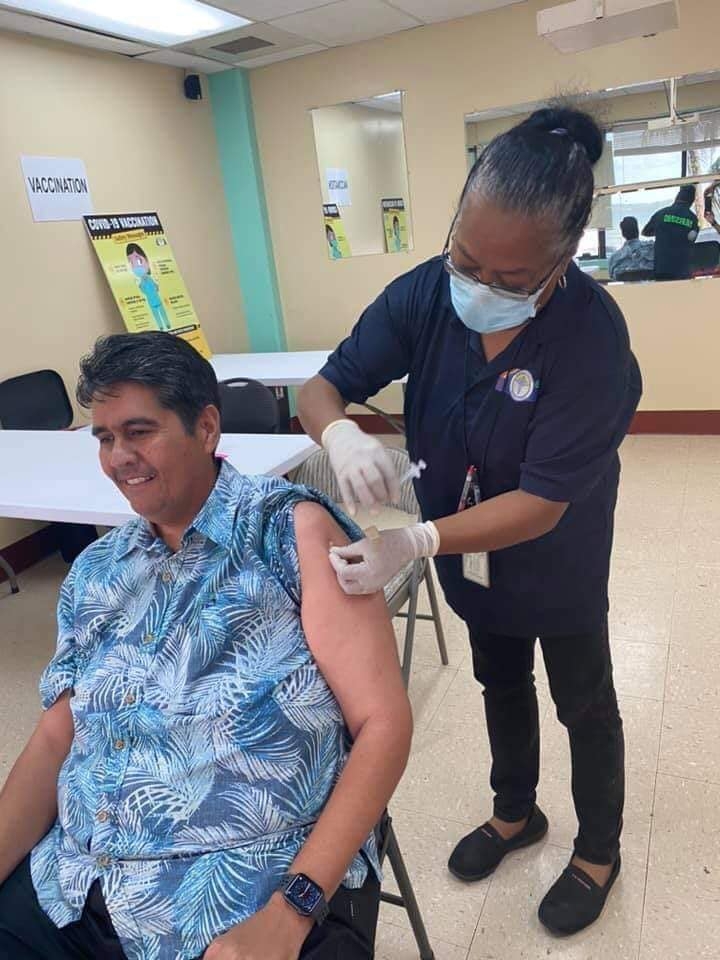Pacific island nations can learn from the early roll-out of coronavirus vaccines in the north Pacific says the World Health Organisation’s Representative in the South Pacific.
The Pacific’s COVID response is on the agenda of today’s Pacific Islands Forum (PIF) leaders virtual retreat, along with the election of a new PIF Secretary General and action on climate change. A number of PIF members—including Marshall Islands, Federated States of Micronesia, Palau—are already vaccinating their citizens.
WHO’s Dr Corinne Capuano says while their initial projections were to see the vaccine rollout in the second half of this year in the South Pacific, there is a lot of work being done and it may be earlier, although it’s a complex issue. Forum members are talking to their development partners about vaccine procurement as COVAX is not expected to meet all vaccine requirements.
WHO Director General Dr Tedros Ghebreyesus recently said the world faces moral failure if it doesn’t ensure vaccine equity. “Rich countries are rolling out vaccines, while the world’s least-developed countries watch and wait,” he said, challenging world and health leaders to ensure that vaccination of health workers and older people is underway in all countries within the first 100 days of 2021.
It’s a message the next Chair of the Pacific Islands Forum, Fiji Prime Minister Voreqe Bainimarama reiterated when he opened the Pacific Island Forum’s reconstructed fale in Suva last week: “With vaccines rolling out across the developed world, we must not allow our region to be cast to the fate of “immunity inequality”. Our people must be kept protected. Our economies must keep pace with what may well be the most important economic recovery in a century. For that to happen, COVID-19 vaccines must become available to our citizens, not months or – God forbid – years after the developed nations, but alongside them. Because we know none of us is safe, until all of us are.”
Suva-based Dr Capuano says there are things to be learnt from vaccination campaigns already underway, including logistics such as cold chain management, and the importance of identifying priority recipients, that is, people most at risk of being exposed to the disease such as health care workers and people working at our borders.
She says dealing with any side effects will also be important; “making sure you have in place systems that are able to deal with any side effects. It is important that you can take care of any side effects after the vaccination and that you have a surveillance system in place so you can monitor what is happening after vaccination.
“The other element is that the vaccine that is currently used in the Pacific requires two doses of injections, so you also want to make sure that you provide full vaccination to people, so you have a registering system that is allowing you to ensure that if people that get the first dose, they get the second as well.”
Dr Capuano cautions that the vaccine is “not a magic bullet” and “non-pharmaceutical interventions”—handwashing, physical distancing and the wearing of masks—remain important, especially in places with community transmission.
She says Fiji and other Pacific nations have been “working very hard” to prepare for vaccine deployment, including messages to overcome the so-called vaccine hesitancy that has been seen in some other countries.
“As the campaign is rolling in other countries in the world, people also see what is going on and that this is the value of being vaccinated. So we see a lot of critical information coming from other parts of the world that can be useful for the Pacific.”
Dr Capuano made the comments at the recent signing of an agreement between the WHO, European Union, United Nations Food Programme and Pacific Community to strengthen the health sector across the Pacific. The European Union has repurposed US$24 million under the EU-Pacific Islands Forum Secretariat Financing Agreement to fund this work in Cook Islands, Kiribati, Fiji, the Republic of Marshall Island, the Federated States of Micronesia, Nauru, Niue, Palau, Papua New Guinea, Samoa, Solomon Islands, Tonga, Tuvalu and Vanuatu.

One Comment “Vanuatu Election results disrupted by Chair’s death, COVID-19 precautions”
Comments are closed.